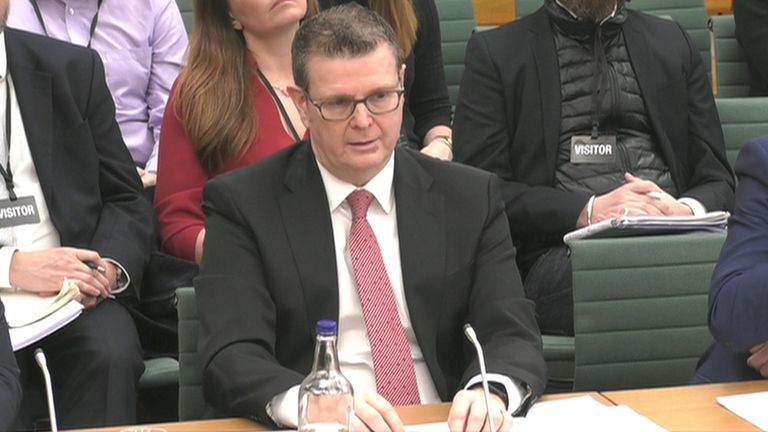
Royal Mail has been referred to the industry regulator by a committee of MPs which has accused the company of failing in its duty to deliver letters six days a week and questioned whether its management is negligent.
The Business, Energy and Industrial Strategy (BEIS) Committee declared that the company had “systematically failed to deliver” the universal service obligation for letters, finding that it had prioritised more lucrative parcels instead.
It said it had asked Ofcom, which has the power to impose penalties, to open an enforcement investigation following the publication of its report into activities at Royal Mail.
The committee also took aim at chief executive Simon Thompson, who was recalled to give evidence a second time during the course of its probe after an outcry among postal workers about the accuracy of his original testimony.
The report accused him of being “not wholly accurate” in answers he gave them on the use of technology to track and discipline workers, following numerous complaints on the issue raised by staff.
“Royal Mail denied having any knowledge of the tracking of postal workers using technology and said evidence of this practice, and of managers disciplining postal workers using such data, was due to non-compliance with Royal Mail policy,” the committee said.
The MPs determined that they “did not believe that such widespread errors could happen without direct or indirect approval of management” and asked the company’s board to review the situation on the grounds of “negligence” if they knew nothing about the practices.
The report also called on the information commissioner to check the legal basis for the collection and use of this data.
The MPs inquiry took place against the backdrop of a bitter industrial dispute involving 112,000 Communication Workers’ Union (CWU) members at Royal Mail over pay and the company’s modernisation plans.
There has been limited progress in talks to avert further strike action which crippled deliveries in the run-up to the company’s core Christmas season – piling more pressure on Mr Thompson.
Committee chairman Darren Jones said: “I find it hard to believe that such widespread breaches of company policy and legal obligations are down to a national network of rogue workers conspiring against management at Royal Mail.
“We were inundated with evidence from postal workers challenging the accuracy of answers given by Royal Mail CEO Simon Thompson.
“Frankly, the failures in company policy which Mr Thompson has admitted to can only be due to either an unacceptable level of incompetence or an unacceptable level of cluelessness about what is happening at Royal Mail.
“Hiding behind the pandemic as a driving factor in failures at Royal Mail does not cut it.”
The MPs, however, did express concern over the company’s expanding losses – with £200m blamed on strikes to date alone.
A Royal Mail spokesperson said: “Royal Mail is proud to deliver the universal service, and our policies are clear that parcels and letters should be treated with equal importance.
“We have informed the committee that we will be reviewing the consistent application of our policies regarding the delivery of letters and parcels across the business.
“We will share our findings with the committee and Ofcom. We have asked the committee to share the material they have received, and reiterate again our request for them to do that at the earliest opportunity so it can help inform that review.
“Royal Mail answered in detail the questions asked by the committee – in person and in correspondence – about the company’s performance, finances and service delivery.
“We reject the suggestion that Royal Mail may have misled the BEIS Select Committee in that process.”













